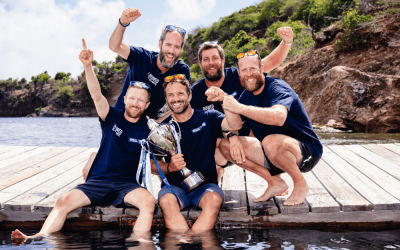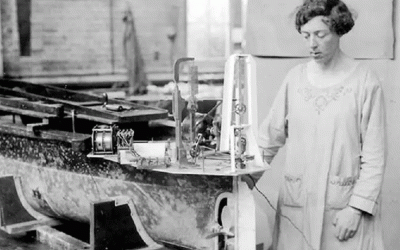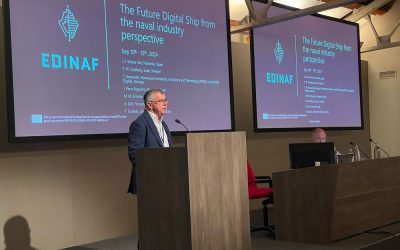The Naval Architect: April 2019
But there’s another option and its proponents believe it could offer the easiest and most viable way of meeting the sulphur cap while also lowering CO2 emissions – biofuel.
Last month, a partnership between the Swedish furniture retailer IKEA, CMA CGM, the sustainable initiative the GoodShipping Program and the Port of Rotterdam saw the world’s first ocean freight bunkered with marine bio-fuel.
The refuelling of the CMA CGM White Shark – a 5,095 TEU container vessel – represents an attempt to scale up the use of sustainable low carbon marine biofuels.
Produced by the Dutch-based company, GoodFuels, the biofuel is expected to cut up to 90% of CO2 emission versus its fossil fuel equivalents and “virtually eliminate” sulphur oxide emissions.
Established in 2015, the company worked for three years to develop the ‘drop-in’ biofuel, testing over 20 different variations in the process. Today, more than 300 ships are fuelled in some manner using the mixture derived from waste cooking oils and forest residues.
For some vessels, this means being entirely bunkered with the biofuel, while others opt to bend the highly compatible fuel with conventional low-sulphur heavy fuel oils. The fuel mimics the characteristics of heavy fuel oil (HFO), so no engine modifications are necessary. It can simply be dropped into any type of vessel.
“It’s basically a new category [of fuel]: a low-carbon, zero-sulphur fuel,” says Dirk Kronemeijer, CEO and founder of GoodFuels.
Although the biofuel is functionally very similar to HFO, its energy density is slightly less. Therefore, in order to meet the same energy content as HFO, the company supplies more fuel to their clients.
“If we want to decarbonise all IKEA sea freights, say for example that’s 10,000 tonnes, we probably have to deliver in the range of 11,000tonnes,” says Kronemeijer.
A professed “green oil guy”, Kronemeijer set up the company after initially working with sustainable jet fuel. He discovered streams of potential feedstocks, which were deemed unsuitable for use by the aviation industry, would be ideal for a marine combustion engine.
GoodFuels original biofuels were created only using waste cooking oil but to improve the product’s scalability, forest residues from paper and pulp production in Scandinavia were later added. The company plans on exploring the potential of urban waste streams as well as waste plastics that are no longer recyclable as part of their feedstocks.
The company first brought the fuel to the market last year with the Danish company Norden. Together they tested the fuel on a 37,000dwt Handysize product tanker vessel, the Nord Highlander, during a voyage from the Netherlands to Estonia. Since then, GoodFuels has begun scaling rapidly, partnering with VARO Energy to improve the availability of biofuel for deep sea vessels. To date, they have installed bunkering infrastructure in Rotterdam, Amsterdam and Antwerp.
Currently, the biggest roadblock for the biofuel is balancing its price while expanding its bunkering locations. The difference between the availability of the biofuel and LNG, Kronemeijer explains, is that “we want to be as affordable as possible, meaning we are mainly operating in those areas where carbon really matters and there are incentives available stimulating low-carbon fuels.”






